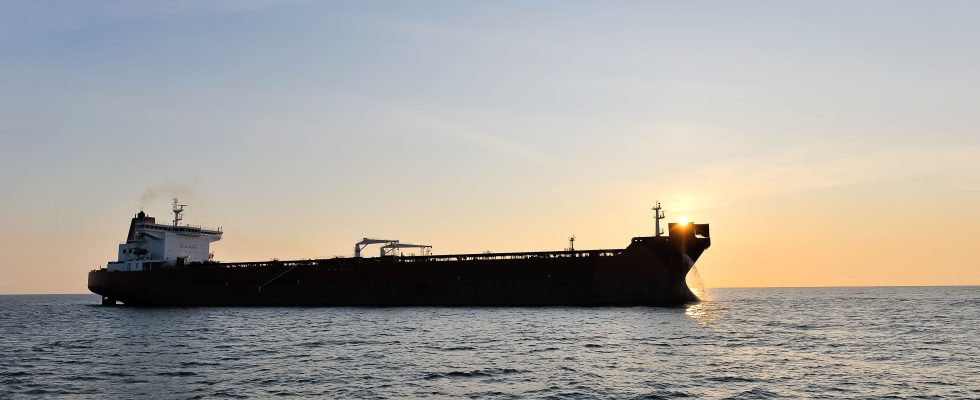It is called the “ghost” fleet, the “shadow” fleet or the “secret” fleet. An army of old tankers, which secretly sails the world’s maritime waters in order to continue exporting Putin’s oil, despite sanctions. If this problem has arisen in Western countries since the start of the Russian invasion, it is the British Parliament which has decided to shed light on this crucial subject for the future of the conflict in Ukraine. “We are concerned by the growing evidence that Russia has been able to circumvent sanctions, notably through third states and ghost tanker fleets,” writes the House of Lords European Affairs Committee, responsible for writing a report published Wednesday January 31. On this issue, “the United Kingdom and its allies must take decisive action,” she said.
Western sanctions increased following the start of the invasion of Ukraine, to directly hit Moscow’s financial windfall. There was notably the establishment of a progressive oil embargo, of course. Without forgetting the capping of the price of a barrel of Russian oil at 60 dollars, with a ban on providing services enabling maritime transport (trading, freight, insurance, shipowners, etc.) for companies based in EU countries, G7 and Australia.
2.3 million barrels exported every day in October
But to easily circumvent these sanctions, Moscow has gradually reduced its dependence on Western maritime services. By therefore building this “ghost fleet” of tankers, by purchasing old ships to which it offers its own insurance services, outside the international insurance system. “179 full tankers of the Russian ghost fleet left Russian ports in November 2023,” says the kyiv-based Ukrainian economic institute KSE in its December “Russian Oil Tracker” report“70% of which were built more than 15 years ago”.
Still according to the KSE institute, in October 2023 alone, this “ghost fleet” allowed the export of around 2.3 million barrels per day of crude oil, as well as 800,000 barrels per day of petroleum products. And at very advantageous prices, much more expensive than the prices imposed by Western sanctions: according to an official Western diplomatic source in the Financial Times last November, “almost no Russian oil is sold below the $60 cap.” A supply which has been particularly useful to China, India and even Turkey.
An environmental and safety hazard at sea
The situation is far from new, and Western countries are currently unable to contain it. “A cold war is raging at sea. For Westerners, the situation is perilous: applying sanctions against a small rogue state is one thing; preventing one of the world’s leading oil producers from selling its goods is more complicated “, Paul Tourret, director of the Nantes-Saint-Nazaire Higher Institute of Maritime Economics, already analyzed with L’Express in February 2023. The British parliamentary report points out in particular the fact that “gaps and flaws result from divergences between sanctions regimes, which weakens their effectiveness”, calling for them to be “as limited as possible”.
These ships also represent a very significant risk for the environment and for the safety of maritime transport. Indeed, to operate without being detected, these ships deactivate their GPS signal, leading to a drastic increase in the risk of collision with other ships. If we add to this the significant wear and tear of these tankers, the risks of accidents have multiplied… even though these ships are not insured. There is no shortage of examples: last October, an oil tanker more than 26 years old, flying the Cameroonian flag and part of the Russian “ghost fleet”, was found adrift in the Indian Ocean, near the ‘Indonesia. Its last inspection took place in 2017.
According to a study published by the American think tank The Atlantic Council, nearly 50 accidents of this type have reportedly taken place since the start of the war in Ukraine, involving ships suspected of belonging to the Russian “ghost fleet”. Often with the same types of calamities: fires, engine failures, collisions, loss of rudder and oil spills. “Each time such an accident occurs, the insurer of another ship or a government has had to cover most of the expenses incurred,” details the think tank. The latter goes on to explain that “as the ghost ship fleet grows, ages and causes more incidents, these expenses will increase rapidly” and “the burden of implementing a more large number of incident responses will continue to increase. A problem which, in the improbable fictional scenario where it would concern France, would nevertheless pose an important question: would we be ready to rescue a ship illegally transporting Russian oil?
